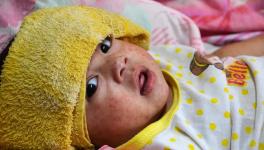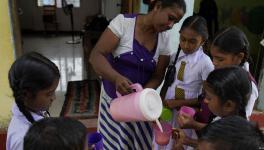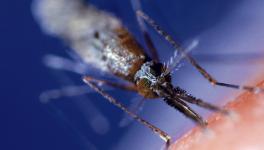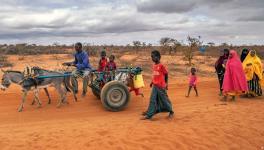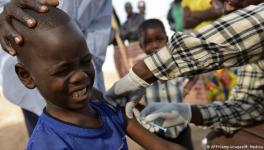UNICEF Report Gives ‘Early Warning’ Following Decline of Childhood Vaccination Due to Pandemic Disruption
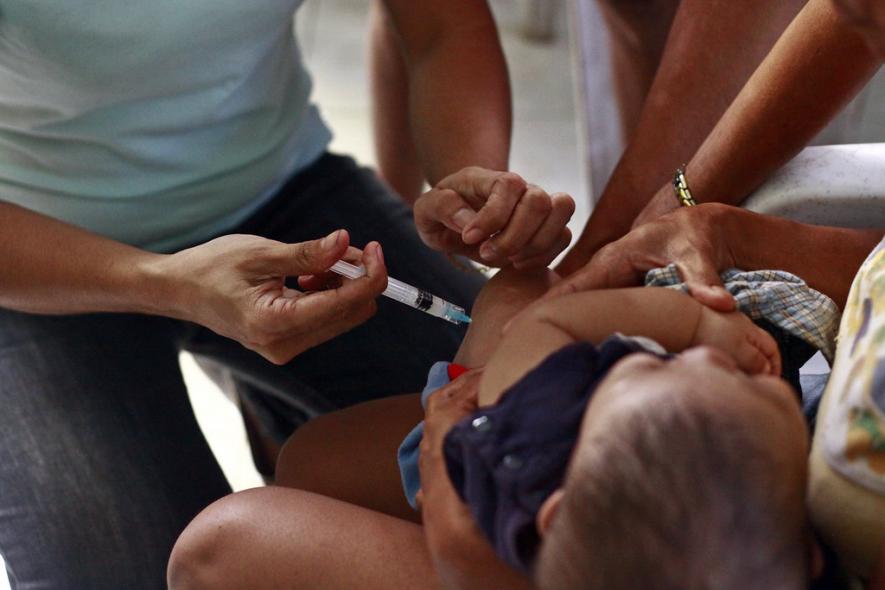
Image Courtesy: Flickr
The United Nations Children’s Fund or UNICEF, in its latest report, has revealed an early warning on childhood vaccination across the world. Due to the disruptions during the COVID-19 pandemic between 2019-2021, some 67 million or 6.7 crore children worldwide missed routine vaccinations partially or totally.
The UNICEF report titled ‘The State of World’s Children 2023’ suggests that lockdowns and an overall panic in the healthcare system during that period primarily caused the decline in vaccination.
The report is an early warning saying that returning to the previous track record of worldwide childhood vaccination will be challenging as what had been achieved in decades-long efforts in routine childhood vaccinations has eroded abruptly.
The report raises the alarm that there is a possibility of outbreaks of measles and malaria in several parts of the world owing to missed vaccinations. Out of the 67 million children that missed vaccination, there are 48 million who have missed it totally, which raises the possibility of potential outbreaks. Some diseases may come back again in a large population, which could have been prevented by vaccines. For example, approximately 2.6 million people used to die each year, especially children, due to measles. After the vaccination was introduced back in 1963, the death rate plummeted to around 128,000 by 2021. However, measles cases have increased in 2022 with vaccination going down by 5%.
The report says that as many as 112 countries have seen a decline in childhood vaccination and more worryingly, the percentage of vaccinated children slipped by 5% (from 86% to 81%) during the pandemic period – the lowest since 2008.
Brian Keeley, the editor-in-chief of the UNICEF report, was quoted as saying by AFP: “Vaccines have played a really important role in allowing more children to live healthy, long lives. Any decline at all in vaccination rates is worrying." Keeley further pointed out that there could be several other factors like food insecurity or climate change that have contributed to the decline in vaccination. Al Jazeera reported Keeley to have said: “You’ve got an increasing number of conflicts, economic stagnation in a lot of countries, climate emergencies, and so on. This all sort of makes it harder and harder for health systems and countries to meet vaccination needs.”
The report also brought out some of the reasons why going back to the previous status will be challenging. Loss of confidence in vaccines and their importance, UNICEF suggests, is one reason for the overall vaccination decline. The report says that in 52 countries among the 55 that were surveyed, public perception of childhood vaccination changed during 2019-2021. The rise in vaccine hesitancy, the report suggests, is a warning signal.
Papua New Guinea and South Korea are the countries that saw a decline of confidence on vaccines by around 44%. Similarly, countries like Ghana, Senegal, and Japan saw this confidence on vaccines to be plummeting by one-third. The USA registered a decline in vaccine confidence of 13.6%.
However, the report says, India, China, and Mexico are the countries where confidence in vaccines remained the same or it has increased slightly.
However, the report suggests that the change in vaccine confidence may not be long-term. Good thing is that, despite an overall decline, over 80% of the respondents in half of the countries surveyed showed their confidence in childhood vaccination.
Get the latest reports & analysis with people's perspective on Protests, movements & deep analytical videos, discussions of the current affairs in your Telegram app. Subscribe to NewsClick's Telegram channel & get Real-Time updates on stories, as they get published on our website.









